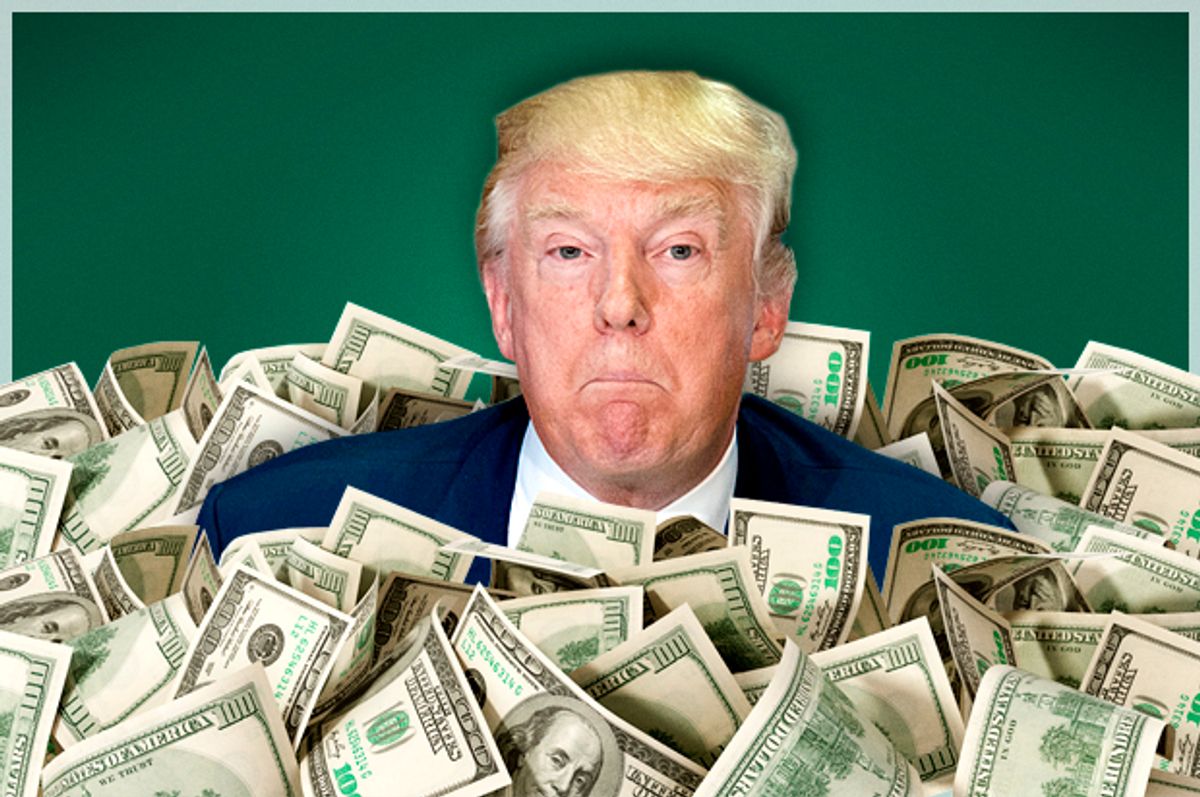It is a time-honored tradition for presidents in both parties to give at least some ambassadorial positions to friends and political donors, over people who have actual qualifications or experience. But President Donald Trump has taken the practice to a new extreme.
According to a paper recently published in the Duke Law Journal, less than 59 percent of ambassadorial appointees under Trump have experience as foreign service officers — none of the last five presidents, going back to 1981, dipped lower than 68 percent. Trump’s ambassadors also are the least likely since the Reagan administration to know their host country’s language (55.2 percent), and the least likely since the Clinton administration to have any professional experience with their host country at all (41.4 percent).
What Trump’s ambassadors do seem to have are deep pockets. The same study found that people appointed as U.S. ambassadors under Trump contributed a combined $96,900 to the president’s election campaign. For perspective, the total amount contributed to the campaigns Reagan, both Bushes, Clinton, and Obama by all of their respective ambassadors combined adds up to about $99,100.
Under Trump, even many ambassadors with some degree of relevant experience have been controversial.
Richard Grenell, a former spokesman to the United Nations now serving as Trump’s ambassador to Germany, made sexist comments about Rachel Maddow and Hillary Clinton on Twitter, threatened German businesses with sanctions on his first day in office, and said he wanted to “empower” right-wing European political parties — a comment that prompted a German official to compare him to a “colonial officer.” And Pete Hoekstra, a Dutch-born former congressman tapped as Trump’s ambassador to the Netherlands, provoked international outrage after claiming his host county was full of Muslim “no-go zones” where cars and politicians were being set on fire (he initially denied he had even said it, calling it “fake news,” but later apologized.)
Meanwhile, there are a number of critically important countries for which, as of February, Trump has not nominated an ambassador at all. Examples include Cuba, where Trump is rolling back a thaw in diplomatic relations; Mexico, where Trump is trying to both build a wall at the border and convince locals to take in Central American migrants; Syria, where Trump inherited a military conflict and wants to pull out; and Venezuela, where Trump has backed the opposition leader in a power struggle and has repeatedly considered an invasion. Until last June, Trump also didn’t have an ambassador to South Korea, even as he held a major summit with North Korean dictator Kim Jong-un and agreed to cancel South Korean military exercises in return for no concrete concession.
Trump does not seem worried about any of this, however. When asked in 2017 why he was so slow to fill diplomatic positions, he answered bluntly, “I’m the only one that matters.”
It is clear that Trump doesn’t value the role of career diplomats in brokering world peace — and more than past presidents, he views ambassadorial positions more as prizes for people loyal to him than as tools of international diplomacy.




Shares